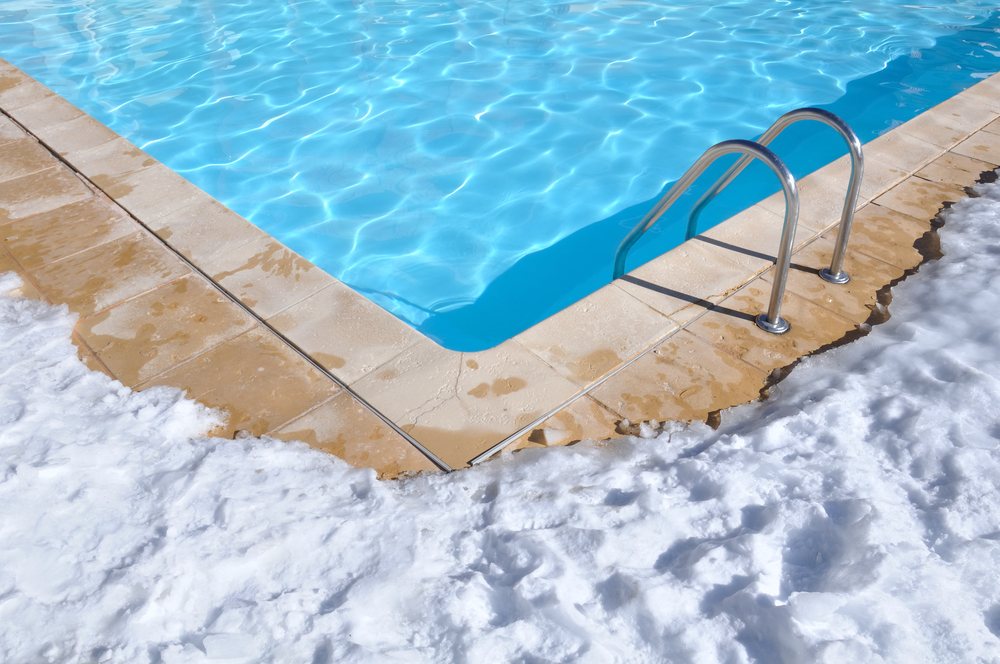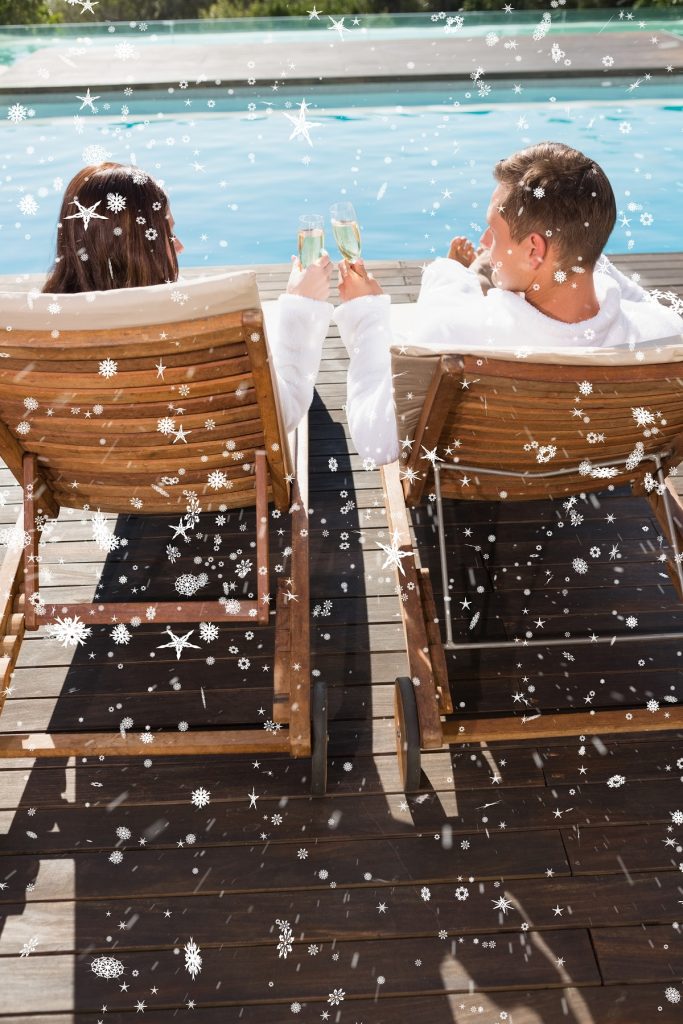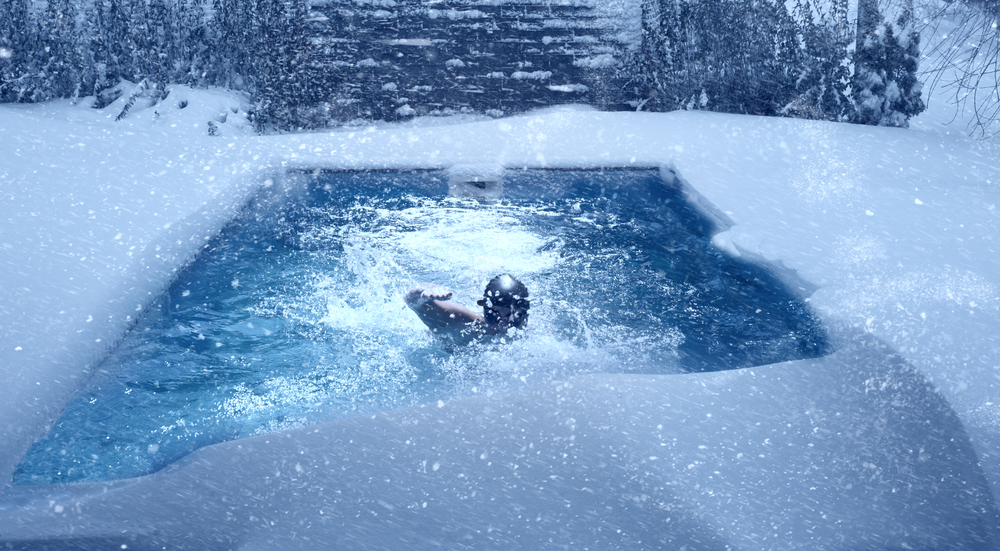We know. We know! It’s only a week into autumn and we don’t want to rush winter, but you can read this article, print it out and keep it handy for that time when the snow is flying and you’re wondering how to help assure your swimming pool survives the winter months.
Swimming pool owners who live in the northeast and midwest and any other part of the country — or world — that is covered in snow for many of the upcoming months of the year will want to know how the steps to take to keep the swimming pool safe.
These tips are also ideal to protect the swimming pool during any season of the year when it is closed up. For example, in the autumn in many parts of the country, leaves and rain and debris can fall onto the swimming pool cover. Sodden leaves, resting in standing water on the pool cover can be a recipe for disaster and a potential cause of pool cover damage. Additionally, when the cover gets weighed down it can tear the equipment holding it in place and it can rip the cover and if the cover rips and the dirty standing water and leaves fall in, you’re looking at the potential of algae filled water before it gets opened in the spring.
 Is your swimming pool still open? Did you have your swimming pool contractor close it right after Labor Day as many pool owners do?
Is your swimming pool still open? Did you have your swimming pool contractor close it right after Labor Day as many pool owners do?
Will Your Swimming Pool Survive The Winter Months?
Is your swimming pool properly closed or will it be soon?
When you’re budgeting for swimming pool ownership you will want to budget for the pool opening and pool closing. Many pool owners, even those who DIY pool maintenance all season, will still call upon the services of a swimming pool contractor to close the pool properly. A swimming pool is too big of an investment to leave seasonal closing to chance.
The steps a swimming pool service contractor takes to close the pool not only protects the equipment, proper closure treats the water and its chemistry and will also involve draining some of the water to proper closing levels. The plumbing lines will have the water blown out, the electricity may be shut off to protect it during the off season as well.
One of the final steps in the pool closing, before the cover goes on is a chlorine shock and the addition of algaecide. The addition of an algaecide will protect the water from growing algae bloom on those days when the water isn’t circulating and the heat of the sun is “activating” algae spores in the water.
 What does your pool contractor do during the seasonal pool closing process?
What does your pool contractor do during the seasonal pool closing process?
- Balance pool water chemicals.
- Shock the water to kill off remaining stubborn bacteria after the pool is cleaned and the chemicals balanced.
- Water levels lowered below the skimmer.
- Water will be blown out of plumbing and equipment water lines. Water will expand if it freezes and can crack or destroy the pipes and equipment.
- Swimming pool “antifreeze” will be added to the lines to prevent freezing of any water left behind.
- Putting in pool floats to prevent the surface of the water from thoroughly freezing. The floats keep the cover from falling into the pool.
- The cover will be put in place and secured.
- You will need to/want to inspect the pool cover during the autumn and winter months if there is rain, heavy snows or a thaw. Use a pool cover vac to remove standing water. Don’t pull chunks of ice off the cover.
If you don’t have to, or don’t live in an area of the country where you need to, here are some off-season pool care tips:
- Run the pool pump when the temps drop below freezing (32 degrees); actually run the pump before the temperatures hit the freezing mark.
- The water must remain balanced with its chemicals. Sanitized water is key during winter months to prevent algae growth and bacteria.
- Using a pool cover is just a good pool ownership practice. Covering it protects it from dirt and debris muddying up the water. When it’s covered you will have fewer hours of pool maintenance ahead of you in the winter months.
If your pool is open year round or if you have a hot tub that you use, invest in fire features to heat your outdoor living space to make getting out of the water not as much of a shock to your system!
Remember, your pool contractor is available year-round for the task of opening and/or closing the pool if you don’t want to do it yourself.

